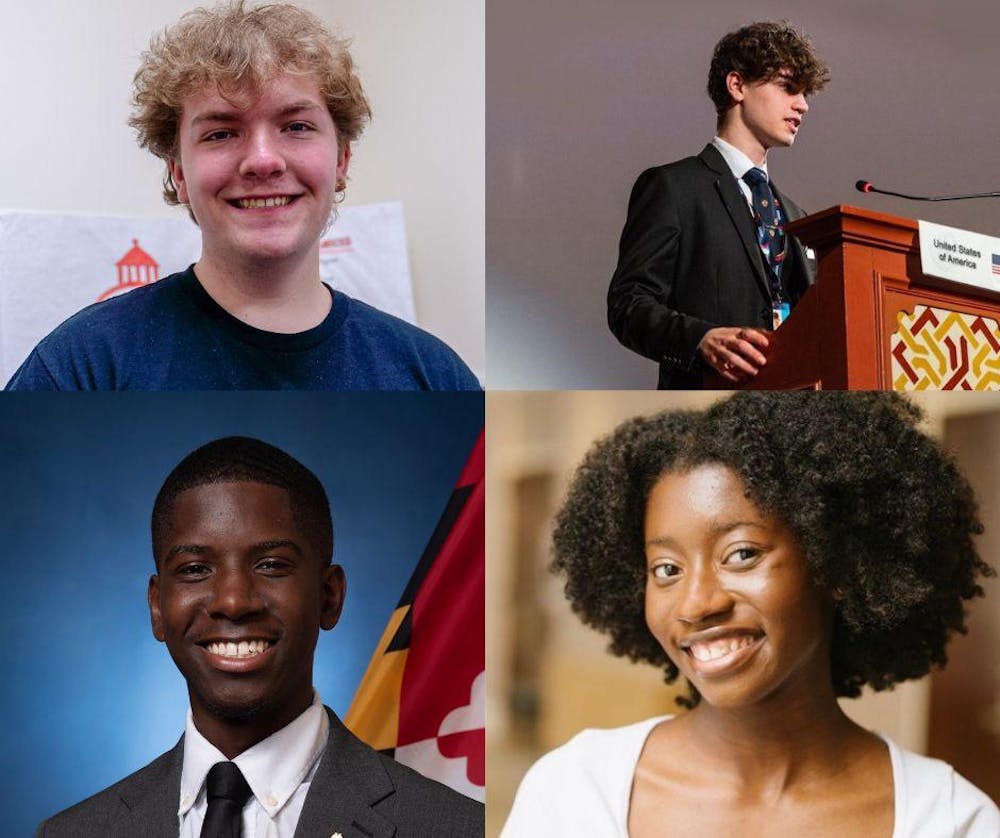Voting for the Student Government Association’s Spring 2025 elections opens April 16 at noon. Talib Reddick ’26, the current vice president of the Undergraduate Council of Students, is running unopposed for UCS president. Tommy Medlin ’27, Balázs Cserneczky ’28 and Eugenia Bamfo ’27 are running for the UCS vice presidency.
SGA will host a candidate forum on Monday in collaboration with Brown Political Union to allow candidates to deliver speeches to the student body, followed by open tabling. Last year’s election cycle was shorter and did not include a forum, The Herald previously reported.
Voting will close on April 21 at noon.
Talib Reddick ’26: President
Reddick, the current UCS VP, began his time at the UCS as a first-year representative before moving on to serve as chair of the Campus Life committee. Running unopposed, Reddick looks forward to continuing “his vision for student government.”
As VP, Reddick listed his greatest achievement as bringing milkshakes to Josiah’s, saying that the effort was “my main project that I had been focusing on for a little over a year and a half.”
He hopes to continue prioritizing improving several student services such as ensuring accessibility to water dispensers across campus and improving dining options.
Reddick also looks forward to continuing democratization efforts that the UCS has been instituting this year through reinstating the General Body.
In light of the federal government’s interventions in higher education, Reddick promised that the UCS will try its best to “ensure that students are safe (and) protected and create better plans for the student body.”
Eugenia Bamfo ’27: Vice President
Bamfo joined the UCS this fall as a member of the council’s Health and Wellness committee and is now the interim chair of the Campus Life committee.
In an interview with The Herald, Bamfo said she has helped organize student shuttles to the airport, programming around diversity in admissions and various town halls.
Bamfo believes that if she is elected as vice president, her relationships with administrators will help her accomplish the initiatives she decides to take on.
One of her top priorities revolves around strengthening and centralizing resources for students affected by federal government actions.
As VP, she would establish a “UCS Advisory Board” run by students not affiliated with UCS to provide feedback on the council’s decisions and increase student participation.
She also hopes to increase the availability of menstrual products and water filtration systems in residence halls, provide discounts to students who need standardized testing preparatory service discounts and expand the dining council.
Tommy Medlin ’27: Vice President
Medlin joined the UCS as a first-year representative before advancing to chair of the Student Activities committee.
During their time on the UCS, Medlin reinstated the Spring Activities Fair and dining council — a group of appointed students used by the UCS to gather opinions on dining, Medlin told The Herald. In his campaign materials, Medlin highlights that he introduced the New Clubs Fair.
Medlin emphasized they will prioritize “supporting student activism and free speech under current federal pressure” while accomplishing realistic initiatives centering student quality of life. As a member of the UCS’s Democratization Committee, Medlin spoke to administrators and helped draft a document advocating for greater student influence over the University’s decision-making.
Medlin added that they are “very invested in the Do Not Comply movement,” which has advocated for University administrators to resist any stipulations the Trump administration may pose on federal funding.
Medlin supports the reinstatement of the UCS general body, which previously allowed any student at Brown to voice opinions about student government decisions.
As VP, Medlin would also aim to extend Thanksgiving break and improve coordination for booking rehearsal and performance spaces.
Balázs Cserneczky ’28: Vice President
While he isn’t currently involved in the UCS, Cserneczky first felt the power of student government in the Hungarian public school system. As part of an effort to crack down on education, the government began withdrawing school funds and firing teachers when Cserneczky was in high school.
As the student body president, Cserneczky organized a sit-in that led to a student rally the next morning. Cserneczky went on to found a city-wide student government representing around 200,000 students.
He hopes to bring this spirit of advocacy to the UCS through three main initiatives: a student senate, institutional protection and a Brown solidarity network.
Cserneczky plans for the student senate to be a representative system for the entire student body that meets around once a month.
“This is a much more engaged, much more direct system of representing student interests,” he said. With the state of higher education under threat by the Trump administration, Cserneczky proposed that the student senate could act as a medium to respond to federal government demands.
“UCS has been mainly defined by its advocacy effort towards the administration, but it has not been taking a central leading role in organizing and mobilizing our community,” Cserneczky said.
He also plans to organize Brown Solidarity Network, an alumni network made up of legal experts, media professionals and government officials to protect “vulnerable communities.”
As the last part of his campaign, Cserneczky proposes free legal counseling for students.
Other policies include advocating for a guarantee by the University to challenge subpoenas for students as well as destroying footage of peaceful protests on campus.
Cserneczky noted that the policies are dependent on approval from and collaboration with the University’s administration. But Cserneczky emphasized the importance of UCS in advocacy.





